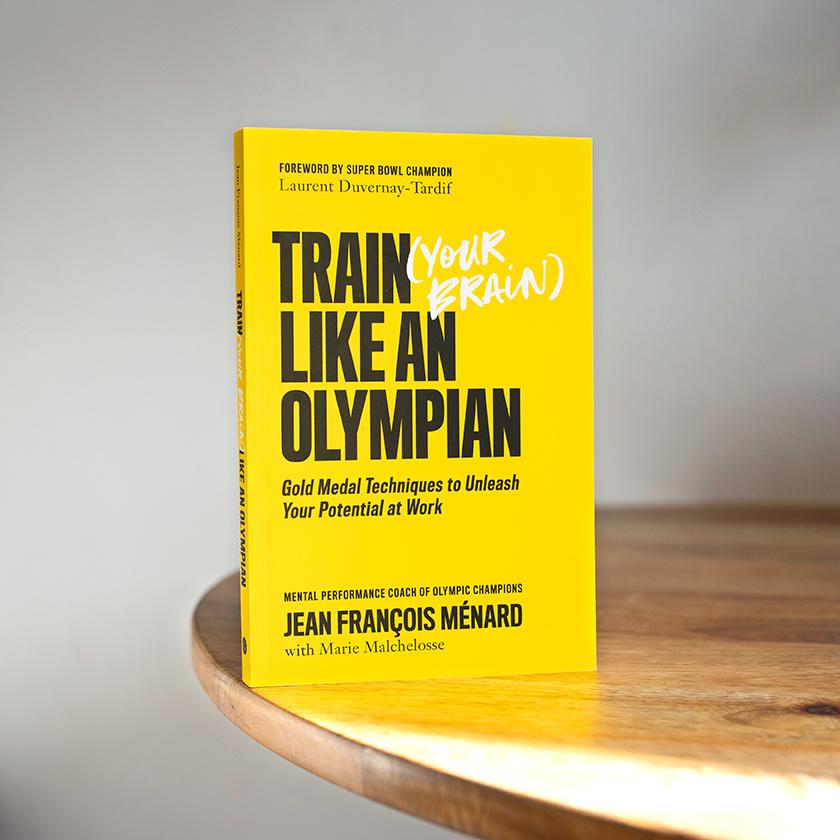
Growth – Train Your Brain Like an Olympian
Failure. It may not be a word we like to use, but let’s face it – it happens. On a world stage like the Olympics, only one person can come in first. And there are times when those predicted to win underperform. And it’s not just in the arena of sports where failure can make a huge dent in one’s confidence. We’ve all experienced those shaky presentations, a staff meeting that went awry, and even how our mind tricks us into thinking: we can’t do the job. How do you bounce back positively from setbacks in the presence of pressure, stress and fear? Can we learn something from Olympians?
That’s why Jean François Ménard wrote his new book Train Your Brain Like an Olympian – Gold Medal Techniques to Unleash Your Potential at Work. Ménard is a mental-performance expert in Montreal and is one of the most sought-after specialists and speakers in this field in the country. He sees a correlation between how athletes train and how to help those in the business world. He has coached many high achievers, including gold medalist decathlete Damian Warner, figure skaters Scott Moir and Tessa Virtue, mogul skiing Olympic champion Mikaël Kingsbury, and Laurent Duvernay-Tardif, Super Bowl champion and medical doctor, along with C-suite executives, among others.

“The brain is the most under-exercised muscle – yet – when we consider the results of Olympians, especially those who are medal contenders,” says Ménard. “It’s not their physical preparedness that is the deciding factor but the brain. After all, we don’t think confidence, we feel it, and feelings are never static.”
We’ve all experienced the noise and chatter of negativity. “The brain doesn’t really distinguish between what’s real and what’s imagined. It simply believes what it hears, not what’s true.”
When we are fearful of making a presentation or taking on a new role, is that fear real?
“Fear is nothing more than a story we tell ourselves. Since it refers to a future event, there’s nothing that guarantees that it will actually happen. Yet we convince ourselves to believe our fears,” says Ménard. Instead, Ménard suggests don’t strive for perfection, be excellent. “Having a perfection mindset is a double-edged sword. It pushes us to set ambitious goals, but the risk of disappointment is high. When perfectionist athletes don’t perform well, they experience agony and frustration, while extreme perfectionists feel anger, even rage. Instead, develop an excellence mentality. Excellence doesn’t mean succeeding 100 per cent of the time, but almost.” So, reframe your expectations and take some of the pressure off.
One of the most significant pieces of advice Ménard shares is knowing your why. “When meeting people
in my office and they say their motivation is slipping, I often ask them why they do what they do? Their answers help fuel resiliency.”
For Ménard, it’s “I have the honour and privilege of helping people achieve their dreams.” He believes everyone can find their inner Olympian. His book provides readers with the tools they can use in their pursuit of excellence. So, let’s start – What’s your why?







